British American Tobacco (BAT) has recently released its Annual Sustainability and Performance Report, detailing the Group’s global ESG performance. The report highlights the Group’s global progress in key areas, including:
Greenhouse gas emissions reductions consistent with climate science : Reduce Scope 1 and 2 greenhouse gas emissions by 33.1% by 2023, and Scope 3 emissions by 12.48% by 2022 compared to a 2020 baseline.
Promoting a circular economy : Reduced operational waste by 28.2% (compared to 2017), helping to achieve BAT’s 25% reduction target ahead of schedule. 94% of packaging materials are made from materials that are reusable, recyclable or compostable.
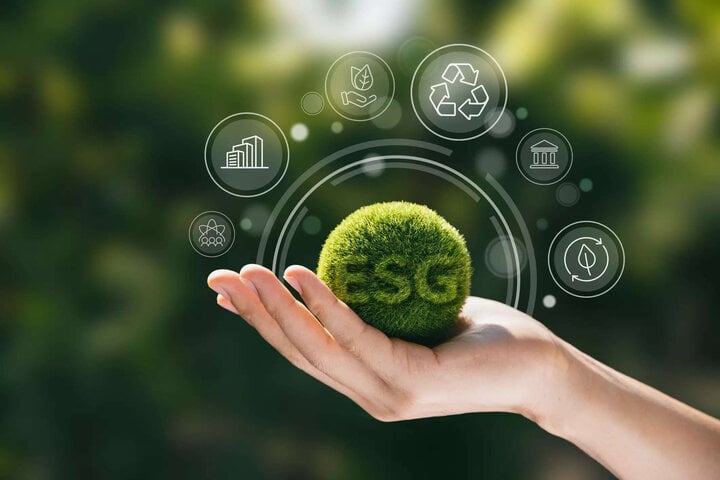
Vietnam is an important market in promoting ESG efforts of multinational corporations.
Creating positive value in agriculture : Reduced water use in BAT’s direct operations by 39.2% (compared to 2017 figures), achieving the 35% reduction target two years early. 93.3% of farmers in the Prosper Supply Chain said they were growing other crops, besides tobacco, to diversify their income sources.
Supporting biodiversity targets: On track to meet biodiversity targets, including achieving 68.8% active forest (utilizing nature-based solutions related to forests) in our tobacco supply chain by 2025.
In its efforts to improve global performance to support local issues, BAT Group has always considered Vietnam an important market in promoting the Group's ESG efforts. Specifically, in minimizing the environmental impacts of tobacco farming activities, actively participating in biodiversity conservation, and promoting social inclusion and equality.
The Group’s ESG vision in Vietnam is built on the global vision of “A Better Tomorrow”. Recognizing the challenges related to sustainable development in Vietnam, BAT has implemented a number of on-the-ground initiatives to support the local community and the country’s development towards a more sustainable future. These initiatives include:
Decarbonize Operations: Promote energy efficiency projects and management systems, deploy renewable energy sources and Power Purchase Agreements to reduce Scope 1 and 2 emissions by 80% (equivalent to an average of 3700 tonnes of CO2 per year) compared to the 2020 baseline, and reach 83% renewable energy.
Conserving Nature through a partnership project with GAIA: Working together to combat climate change and protect biodiversity in Vietnam through afforestation projects of 4 hectares in Dong Nai and 120 hectares of mangrove protection in Ca Mau.
Sustainable Water Management: Efforts in water management through Integrated Work Systems and annual loss analysis, resulting in a 30% reduction in water use from the water utility and a 29% increase in water reuse compared to the 2017 baseline; BAT-Vinataba Joint Venture Plant (PMD) was first certified as Water Management Efficiency by the AWS Water Management Alliance.
Agricultural Education and Support: Ensuring farmers and their families are equipped with the knowledge, equipment and support to grow sustainably. Through programs such as THRIVE, Chín Ngon and crop diversification, BAT has helped increase average farmer income by 11% and deliver returns 30% higher than conventional investments.
Women's Empowerment Program: Financial support for women in My Quy Dong and My Thanh Tay communes, Duc Hue district, Long An province to create conditions for women to carry out livestock raising or small business activities.
Mr. Daniel Hsu, General Director of BAT Vietnam, shared that the company is proud of what it has achieved and sees this as a shared responsibility of all. The fact that the Group has achieved or even exceeded some ESG goals is proof that we can and must change quickly to make real progress.
“This contributes to the implementation of Vietnam's national commitments to the United Nations Sustainable Development Goals,” said Mr. Hsu.
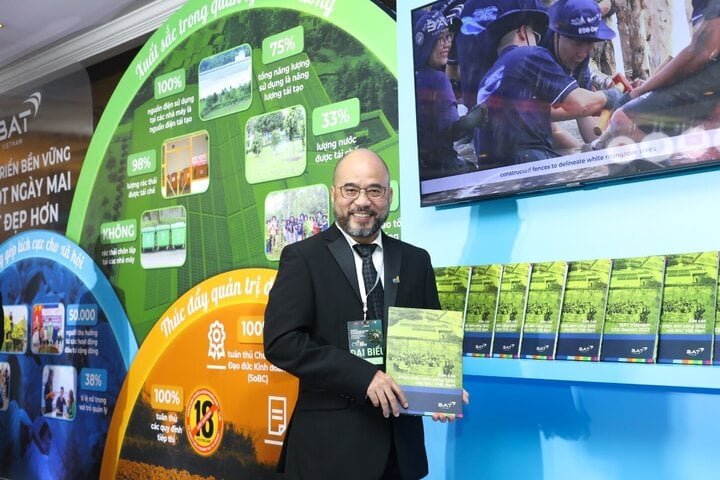
BAT Vietnam's 2022 Sustainability Report presents goals, approaches, initiatives and roadmaps relevant to the Vietnamese market.
Looking forward
In 2024, BAT will continue to strive towards its mission of "A Better Tomorrow" in Vietnam through the following actions:
Creating positive value in agriculture - leveraging the agricultural sourcing model to create positive impact on the supply chain, especially on social and environmental aspects.
Achieve Zero Emissions across the entire value chain - working with suppliers and other stakeholders in the value chain to reduce carbon from the company's operations, while promoting afforestation to sequester carbon and protect biodiversity.
Establish valuable partnerships to support Water Management – continue to implement effective and sustainable solutions, and expand community activities to protect water resources; aim for the Vinataba-BAT Joint Venture Plant (SMD) to achieve Water Management Efficiency certification by the AWS Water Management Alliance.
Minimize the impact of products on health - Continuously research and develop alternative products based on science and capable of minimizing harm to health.
To be a trusted organization that operates with integrity - to build and maintain an internal culture where every employee feels proud of their contributions to BAT's sustainable development goals in Vietnam, and to be an ethical, trustworthy and respectful workplace.
Source




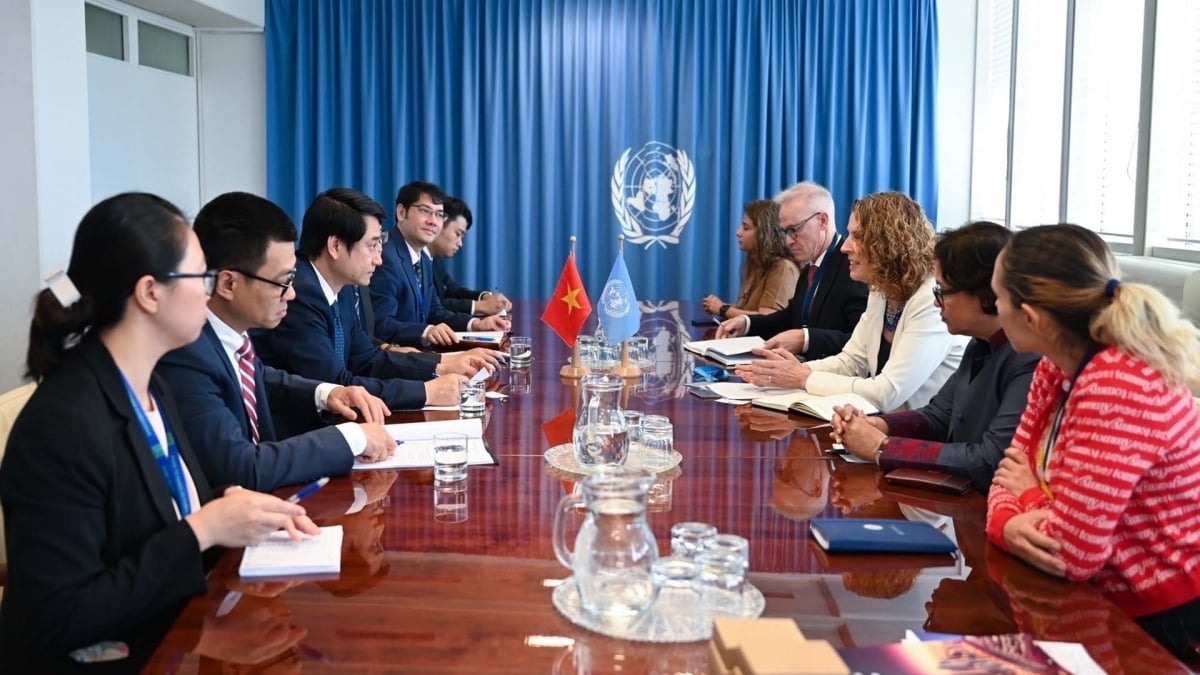

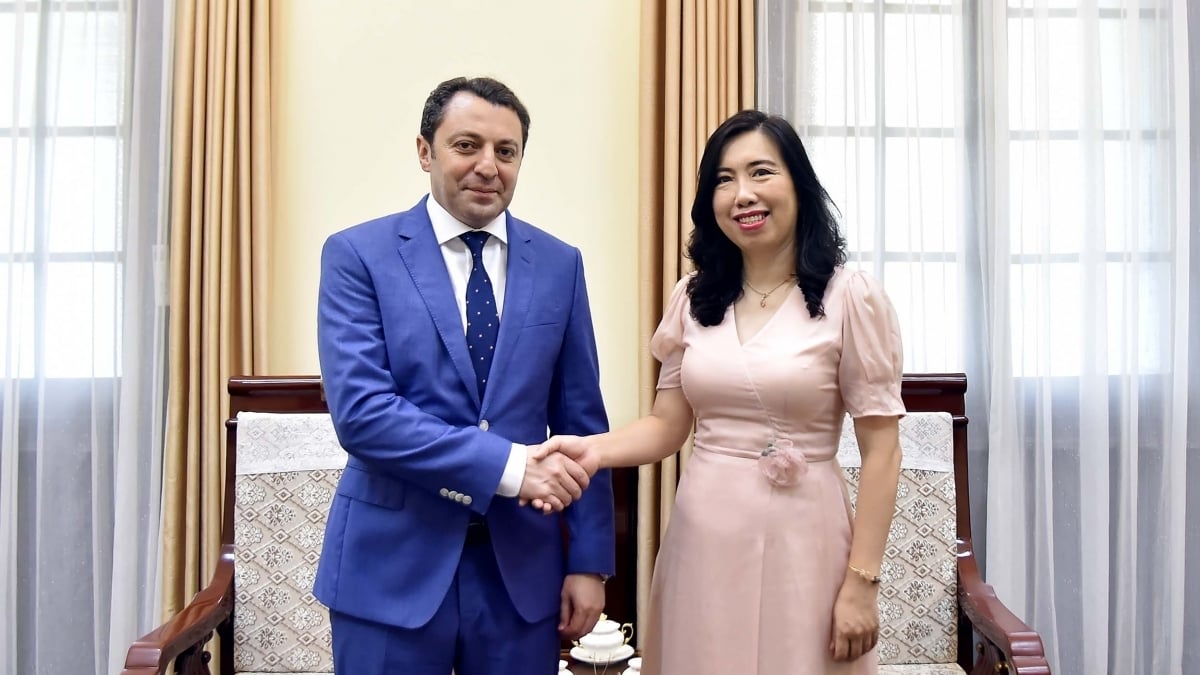

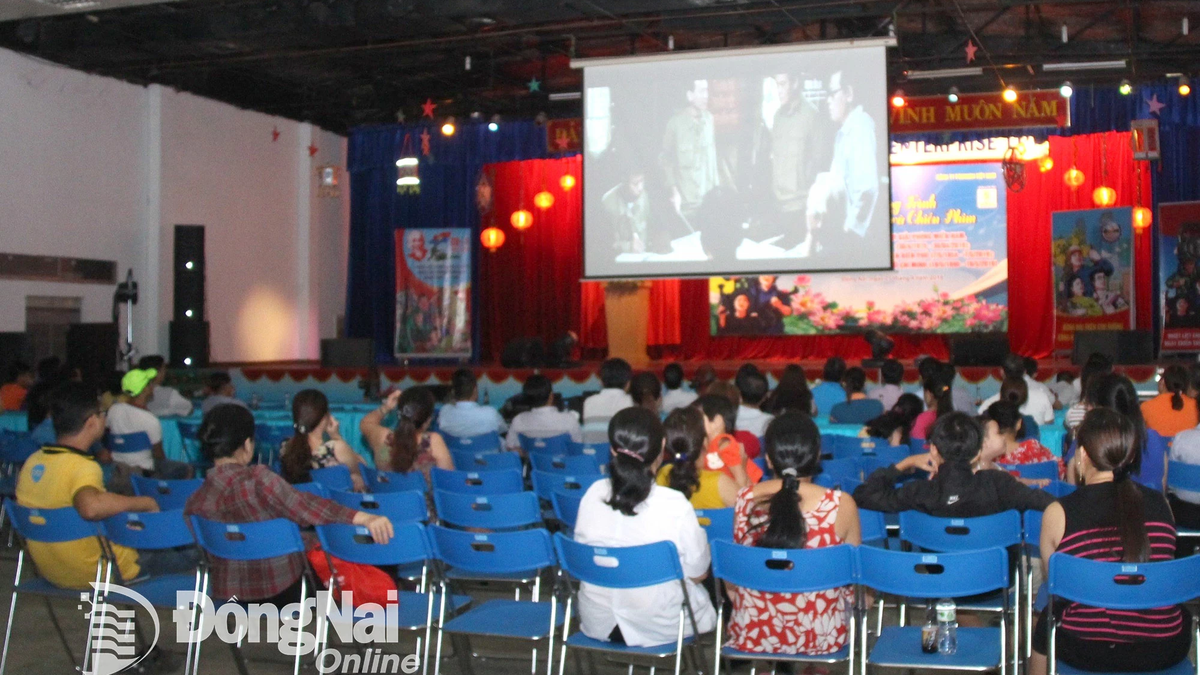
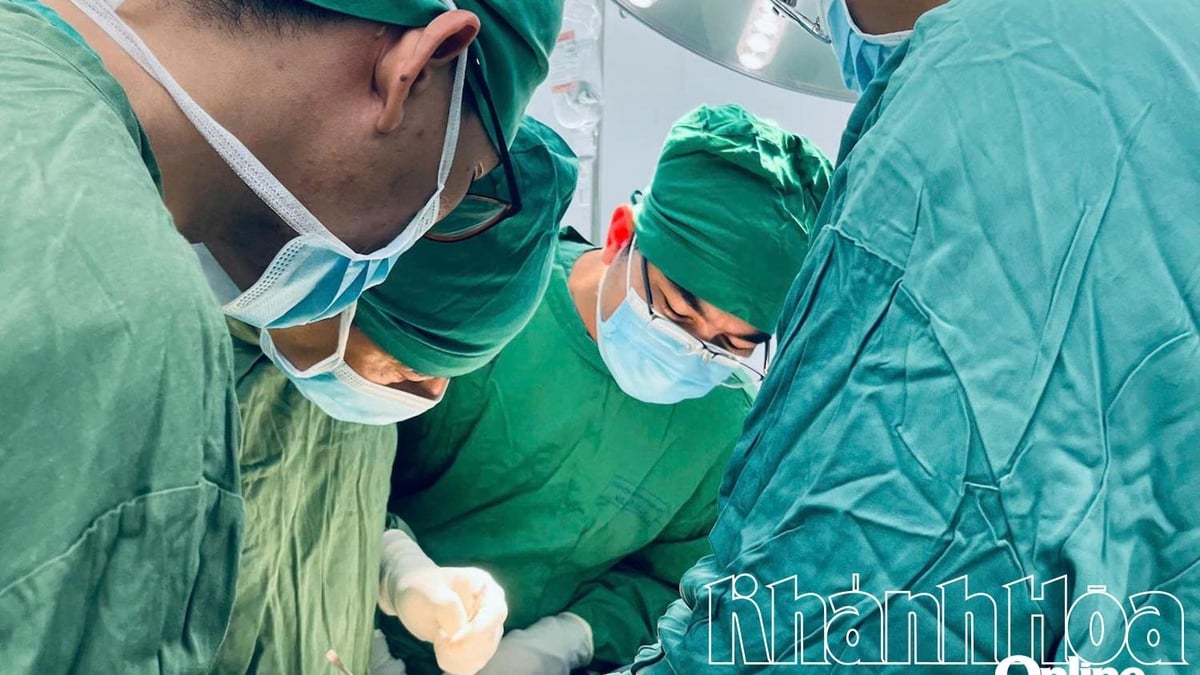

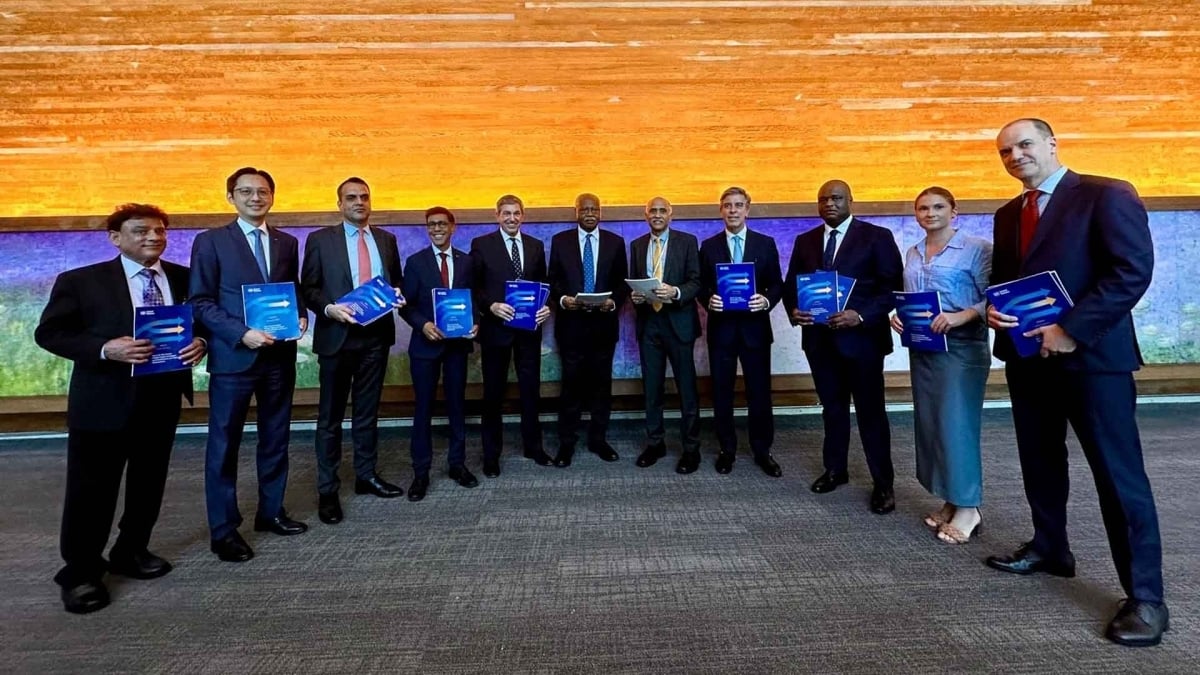


















































































![[Infographic] In 2025, 47 products will achieve national OCOP](https://vphoto.vietnam.vn/thumb/402x226/vietnam/resource/IMAGE/2025/7/16/5d672398b0744db3ab920e05db8e5b7d)





Comment (0)